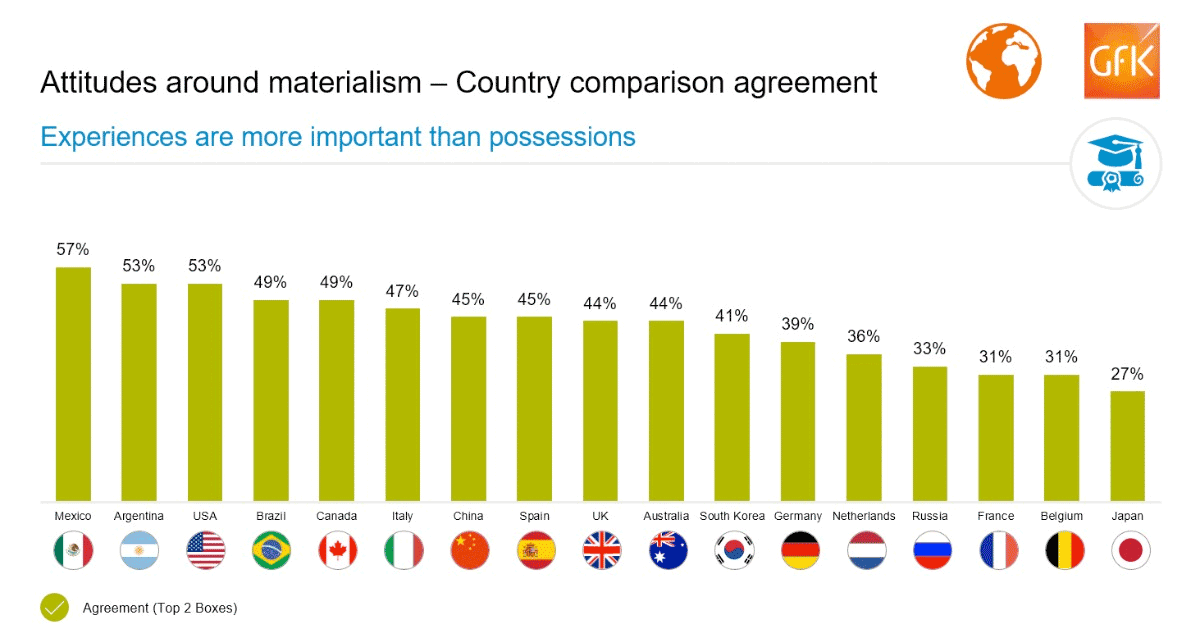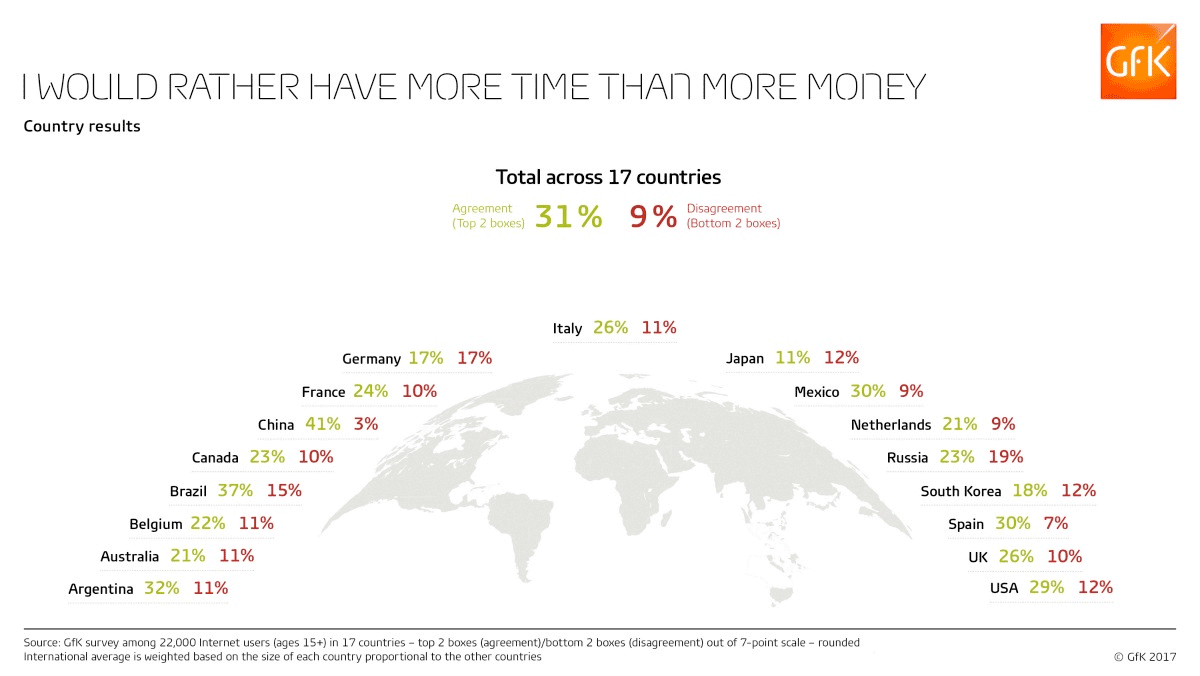More than half of Americans find experiences more important than possessions
May 26, 2017
 In a newly released global study by GfK, more than half (53%) of US consumers agree that “experiences are more important than possessions” – compared to only 2% who disagree. In addition, nearly a third (29%) say they “would rather have more time than more money” – while 12% disagree with that statement.
In a newly released global study by GfK, more than half (53%) of US consumers agree that “experiences are more important than possessions” – compared to only 2% who disagree. In addition, nearly a third (29%) say they “would rather have more time than more money” – while 12% disagree with that statement.
The US findings are comparable to the international averages across 17 countries; respondents in each region indicated how strongly they agree or disagree with two statements: “I would rather have more time than more money” and “Experiences are more important than possessions.”
Globally, almost one-third (31%) of consumers would prefer to have more time than more money – compared to only 9% who say the opposite. In addition, more than four out of ten (44%) say that experiences are more important than possessions – compared to just 3% who disagree.
Of the countries surveyed, China (41%), Brazil (37%) and Argentina (32%) have the highest levels of preferring time over money.. Mexico (57%), Argentina and the USA (both 53%) have the largest proportions consumers who agree that experiences are more important than possessions.
Though income plays a factor in consumers’ mindsets, it may not be to the extent one would imagine. There is a 13 percentage point difference between Americans in high-income households and those in low-income households, when it comes to preferring to have more time than more money (37% versus 24%).
A similar picture is seen in people’s perception that experiences are more important than possessions. More than half (56%) of Americans in high-income households agree that experiences are more important, compared to 45% in low-income households.
Money becomes relatively more important to those over 60
There are also some differences to be noted between age groups. Americans in their twenties and thirties have the highest percentage (38% each) of any age group when it comes to opting for more time over more money; only 10% of these two age groups firmly disagree with the notion.
In contrast, for those aged 60 and over, there is a much smaller gap between those favoring time over money (20%) and those who say the reverse (16%).
Over half (59%) of American teenagers and those in their twenties (57%) topted for experiences over possessions. Those in their forties (52%) and over sixty (53%) also showed strong agreement with this sentiment.
GfK’s findings clearly show market potential for brands that can associate themselves in consumers’ minds with giving quality time back to people’s lives, or with making daily tasks simpler and faster. Brands can also raise themselves above close competitors by identifying ways to turn their purchase processes into engaging experiences for the consumer.
































